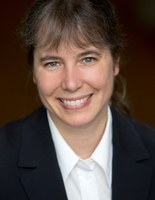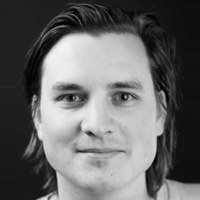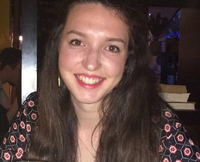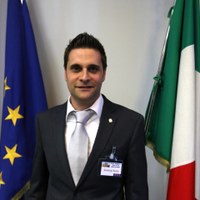2019 Speakers
|
|
Gianluigi Rozza (SISSA) is professor in Numerical Analysis and Scientific computing at International School for Advanced Studies -SISSA, Trieste, Italy. Phd in Applied Mathematics at EPFL in 2005, MSc in Aerospace Engineering at Politecnico di Milano in 2002, post-doc at MIT. At SISSA he is the coordinator of SISSA doctoral program in Mathematical Analysis, Modelling and Applications, lecturer in the master in High Performance Computing, in the master degree in Mathematics, and in the master degree in Data Science and Scientific Computing. He is SISSA Director’s delegate for Valorisation, Innovation, Technology Transfer and Industrial Cooperation. His research is mostly focused in numerical analysis and scientific computing, developing reduced order methods. Author of more than 100 scientific publications (editor of five books and author of two books). Principal Investigator of the European Research Council Consolidator Grant (H2020) AROMA-CFD and for the project FARE-AROMA-CFD funded by Italian Government. Within SISSA mathLab he is responsible of UBE (Under Water Blue Efficiency project), SOPHYA (Seakeeping Of Planing Hull for YAchts) and PRELICA projects, within the regional maritime technology cluster MARE FVG, and coordinator of industrial projects with several companies, such as Danieli, Electrolux and Fincantieri. He is associate editor of SIAM SINUM, SIAM/ASA JUQ, Computing and Visualisation in Science, and Mathematics in Engineering. He is member of the Applied Mathematics Committee of European Mathematical Society. |
|
|
Karen Veroy-Grepl (RWTH, Aachen University) Karen Veroy-Grepl (RWTH Aachen University) is originally from Manila, Philippines, and obtained her bachelors degree in physics from the Ateneo de Manila University. In 1997 she went to the Massachusetts Institute of Technology in Cambridge, MA, where she did her masters, doctoral, and postdoctoral studies. After moving to Germany and a brief stint in industry, she was appointed Junior Professor at RWTH Aachen University in 2010. She was promoted to Professor in 2014, and is currently head of the High-Performance Computation for Engineered Systems Group. She was inducted to the Junior College of the North-Rhine Westphalian Academy of the Sciences and the Arts in 2010, and was awarded a 2017 NRW Fellowship for Innovation in Digital Teaching. She was recently awarded a coveted ERC Consolidator Grant by the European Research Commission for her project to develop mathematical and computational methods for the simulation of multiscale material behavior. |
|
|
Carsten Carstensen (Humboldt Universität zu Berlin) Carsten Carstensen heads the Numerical Analysis Group at the Institute of Mathematics with current foci in the computational partial differential equations on nonstandard discretizations (ranging from Crouzeix-Raviart to discontinuous Petrov-Galerkin) or the mathematical foundation of adaptive mesh-refining in terms of axioms and examples.
He studied Mathematics and Civil Engineering in Hannover from 1983-1989 and wrote a PhD thesis about a topic in numerical linear algebra in 1989. His habilitation thesis on the coupling of finite and boundary element methods was awarded with the von-Mises price of GAMM in 1995. He went to the TH Darmstadt as C3 professor at the same time after two years post-doc at Edinburgh with John Ball on
microstructures. He accepted the chair of applied mathematics and scientific computing in Kiel in 1996 and moved on to in Vienna in 2001 and to Berlin in 2004.
He has written 250 papers, has an h-index 51, and an Erdos number three; he has served for many years on editorial boards such as SINUM or Math Comp and is the editor-in-chief of CMAM. He co-founded the GAMM activity group on microstructures, was the director of the Center of Computational Sciences Adlershof 2010--2015, and chairs a technical committee of ECCOMAS. He is a correspondent member of the Akademie der Wissenschaften und der Literatur Mainz since 2004.
|
 |
Emmanuil Georgoulis (University of Leicester/ NTU Athens) Emmanuil H. Georgoulis is Professor of Mathematics at the University of Leicester, UK, where he leads the Numerical Analysis Group and also is an Associate Professor at the National Technical University of Athens, Greece. Georgoulis studied Mathematics at the University of Athens (1994-1998), before embarking to postgraduate study at Cambridge (MASt — Part III of Math. Tripos, 1998-1999) and at Oxford (D.Phil in Numerical Analysis, 1999-2003). After holding temporary positions at Oxford, Georgoulis moved to Leicester in 2004 initially as Lecturer, then Senior Lecturer, Reader and finally Professor of Mathematics there since 2016. Since 2014 he holds also an Associate Professor appointment at the National Technical University of Athens in Greece. Georgoulis is also affiliated with the Institute of Computational and Applied Mathematics of the Foundation for Research and Technology Hellas, (FORTH), since 2017.
Georgoulis has an established research record in numerical methods for PDEs, and is internationally known for his work on discontinuous Galerkin methods for various classes of PDEs and the design of novel adaptive algorithms based on rigorous a posteriori error bounds. He is also credited as one of the first developers of discontinuous Galerkin methods on polygonal and polyhedral meshes. He has held a funded visiting Professorships at the Hausdorff Institute of Mathematics in Bonn and at the Institute of Applied Calculus of CNR in Rome. Georgoulis currently serves as Associate Editor for the SIAM Journal on Numerical Analysis.
|
 |
Gitta Kutyniok (TU Berlin) Gitta Kutyniok currently holds an Einstein Chair at the Technische Universität Berlin and is head of the Applied Functional Analysis Group. She received her Diploma in Mathematics and Computer Science as well as her Ph.D. degree from the Universität Paderborn in Germany, and her Habilitation in Mathematics in 2006 at the Justus-Liebig Universität Gießen. From 2001 to 2008 she held visiting positions at several US institutions, including Princeton University, Stanford University, Yale University, Georgia Institute of Technology, and Washington University in St. Louis. In 2008, she became a full professor of mathematics at the Universität Osnabrück, and moved to Berlin three years later. |
 |
Daniël M. Pelt (CWI Amsterdam) Dr. Daniël M. Pelt received the Ph.D. degree at Leiden University in 2016, with his Ph.D. research focused on limited-data tomographic reconstruction algorithms. After being a post-doc at the Lawrence Berkeley National Laboratory (2016 - 2017), focusing on developing machine learning algorithms for imaging problems, he is currently a post-doc in the CWI Computational Imaging group. His research is focused on developing machine learning algorithms for the analysis of large 3D scientific images, with a specific focus on computational aspects and real-world applications. He was recently awarded an NWO VENI grant to further develop this line of research. An important application of his work is limited-data tomography. |
 |
Anastasia Borovykh (Imperial college, UK) Anastasia Borovykh is currently a postdoctoral researcher at Imperial College London. Her research focuses on the theoretical aspects of machine learning, in particular on deep neural networks, and understanding how and why these work, as well as on the development of robust and stable learning algorithms and their application to real-world problems in finance, optimization and smart cities. She obtained her PhD cum laude from the University of Bologna in Applied Mathematics as part of a Marie-Curie Industrial Doctorates and Horizon2020 project under the supervision of Prof. Andrea Pascucci and Prof. Cornelis W. Oosterlee. |



